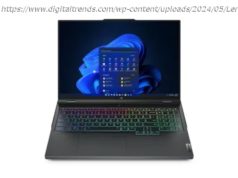 Analyst Gartner is projecting flat growth for worldwide device shipments; it says the combined shipments of PCs, tablets, ultramobiles and mobile phones will total just 2.3 billion in 2017, the same as 2016 estimates — with no growth in these so-called “traditional” computing devices expected until 2018.
Analyst Gartner is projecting flat growth for worldwide device shipments; it says the combined shipments of PCs, tablets, ultramobiles and mobile phones will total just 2.3 billion in 2017, the same as 2016 estimates — with no growth in these so-called “traditional” computing devices expected until 2018.
As of the end of 2016, nearly seven billion of these gadgets were in use globally, by its reckoning.
But while Gartner sees a “stagnating” market for the various devices that are now associated with computing — with mobile phone shipments only growing in emerging Asia/Pacific markets, for example, and the PC market “just reaching the bottom of its decline”, as research director Ranjit Atwal puts it — the analyst has a more positive outlook for supplementary connected devices which offer a more dedicated vs general computing purpose. So the rise of the ‘hardware app’ if I can put it like that.
“We’ve done the market growth part in terms of those core devices, now it’s a case of what other more dedicated devices do we build around that? And the ecosystem to enhance those capabilities across the board,” says Atwal.
“We’ve gone through the saturation of the existing markets — either we say, that’s it; people are not going to buy anything else. Or there are these new markets.”
The emerging categories that Gartner believes consumers are now looking to — for “fresher experiences and applications” — include head mounted displays (HMDs), and virtual personal assistant (VPA) speakers and wearables. So devices such as VR/AR headsets, and — on the VPA front — Amazon’s voice-driven Echo speaker (pictured above) which houses its Alexa voice assistant and can be commanded to do things like play music, tell you the weather, or buy stuff on Amazon.
And while Gartner does not yet have any solid device forecasts for these nascent categories, Atwal says it has conducted surveys that indicate growing consumer use of voice-driven functionality on smartphones. In turn, it reckons that indicates a trend towards consumers actively seeking to separate out some of the capabilities found in their phones and PCs into standalone devices — not least because of how battery life continues to constrain smartphone use.
“We’ve seen that, over the last couple of years, people using voice capabilities more and more,” he says, adding: “The trend here is really about how users are looking for different ways of interacting with their devices.






